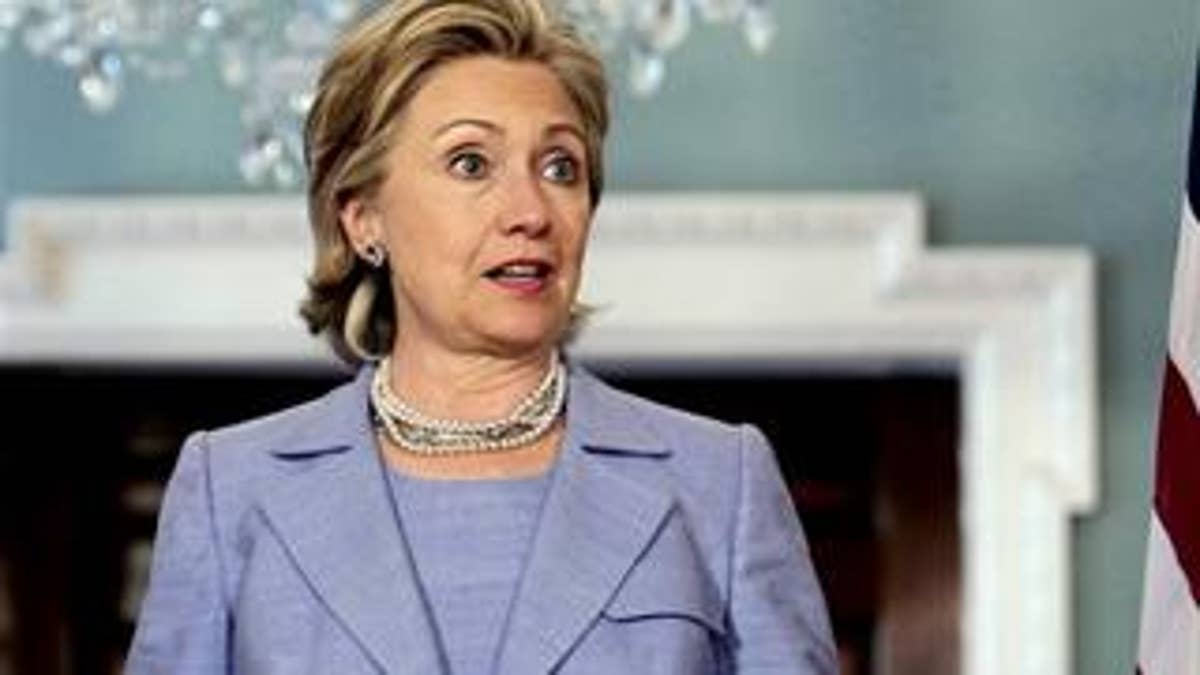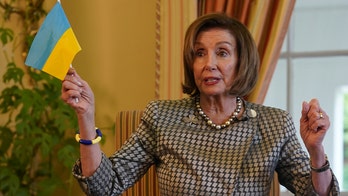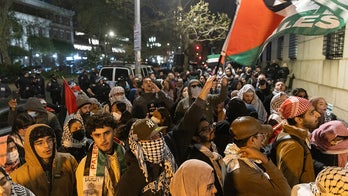
With the results of Iran's election raising serious doubts and leading to clashes in the streets between riot police and hundreds of opposition supporters, questions now loom over how the controversy will affect relations between the U.S. and Iran.
Secretary of State Hillary Clinton said the U.S. would continue to monitor the situation closely.
"But we, like the rest of the world, are waiting and watching to see what the Iranian people decide," she said at a news conference in Niagara Falls, Ontario. "The United States has refrained from commenting on the election in Iran. We obviously hope that the outcome reflects the genuine will and desire of the Iranian people."
White House spokesman Robert Gibbs said the Obama administration was "impressed by the vigorous debate and enthusiasm that this election generated, particularly among young Iranians."
But U.S. officials are skeptical of the outcome, in which the government declared President Mahmoud Ahmadinejad the winner Saturday.
U.S. analysts find it "not credible" that challenger Mir Hossein Mousavi would have lost the balloting in his hometown or that a third candidate, Mehdi Karoubi, would have received less than 1 percent of the total vote, a senior U.S. officials told FOX News.
Despite a reportedly record turnout of 85 percent, the senior official said given the "not credible" counts for Mousavi and Karoubi, the turnout clearly was questionable.
Another senior official said the Obama administration would not describe the outcome as legitimate or illegitimate or deem a victory by Mousavi as necessarily better.
"We're not going to characterize what would have been a better or worse scenario," the official said. "We will deal with this as it is, not as we wish it to be.
"We have very serious foreign policy and national security issues at play here," the official added. "That was the case yesterday. It is the case today."
Yet some U.S. lawmakers didn't hesitate to voice skepticism of the outcome.
"There appears to be pretty good evidence that this is a cooked election," Rep. Dan Lungren, R-Calif., told FOX News. "And the most depressing thing for me is we were going to see whether in fact the true leaders of this country, the religious leaders, were going to allow for a real election to have an expression of the people.
"It appears now from what we see coming in is that was not the case," he said. "That gives an indication that they did not have a real intention of really have a change."
Rep. Connie Mack, R-Fla., said: "This election was neither free nor fair and the world is more dangerous with Ahmadinejad as president of Iran.
He noted that Ahmadinejad has developed a close relationship with Venezuelan President Hugo Chavez, "threatening the freedom, security and prosperity of the Western Hemisphere."
"Ahmadinejad's influence in the hemisphere is very troubling," said Mack, who is the top Republican on the House subcommittee on the Western Hemisphere. "The United States must act now to prevent Ahmadinejad and his cronies in Latin America from destroying the hopes and dreams of the Latin American people."
The dominant view among Obama administration officials is that the regime will look so bad as a result of whipping up Iranian hopes for democracy and then squelching them that the regime may feel compelled to show some conciliatory response to Obama's gestures of engagement.
But Trita Parsi, president of the National Iranian American Council, isn't so sure about that. He noted the Ahmadinejad team "has not been terribly eager to show the United States goodwill and I'm not sure if we would see a shift." He also said if a stalemate emerges, a paralyzed Iranian government would make it difficult for the Obama administration to engage Iran.
Parsi praised Obama for staying largely silent leading up to the election to ensure
Michael Singh, a fellow at The Washington Institute for Near East Policy and former senior director for Middle East affairs on the National Security Council, said Singh said it is widely agreed that elections in Iran are rigged -- candidates are vetted and the results are distorted. And regardless of the outcome, the Supreme Leader Ayatollah Khamenei has the final say on critical issues such as Iran's nuclear program and relations with the United States, he said.
An Ahmadinejad victory, he said, means that Iran's leaders "are shaking their still clenched fists at President Obama's outstretched hand."
But he added that the results should not affect U.S. policy toward Iran.
"The United States and its allies can ill afford any delay or slackening of pressure with the possibility of a nuclear-armed Iran looming ever closer," he said in an opinion article published in Foreignpolicy.com.
He added that the U.S. message to Iran's leaders should be: "We honor not the trappings of democracy but the free exercise of it, and we will judge you not by your words but by your actions."
Supreme Leader Ayatollah Khameini apparently has released a statement calling the results "final" and hailing the election as a legitimization of the regime and its elections.
Violent skirmishes have been reported outside Mousavi's campaign headquarters and of huge demonstrations for both sides in central Tehran, with Mousavi trying to make his way to the one organized by his supporters. Even if widespread violence occurs, analysts see no prospect that this event would lead to a full-scale attempt at revolution or the toppling of the regime.
FOX News' James Rosen, Major Garrett and FOXNews.com's Stephen Clark contributed to this report.




